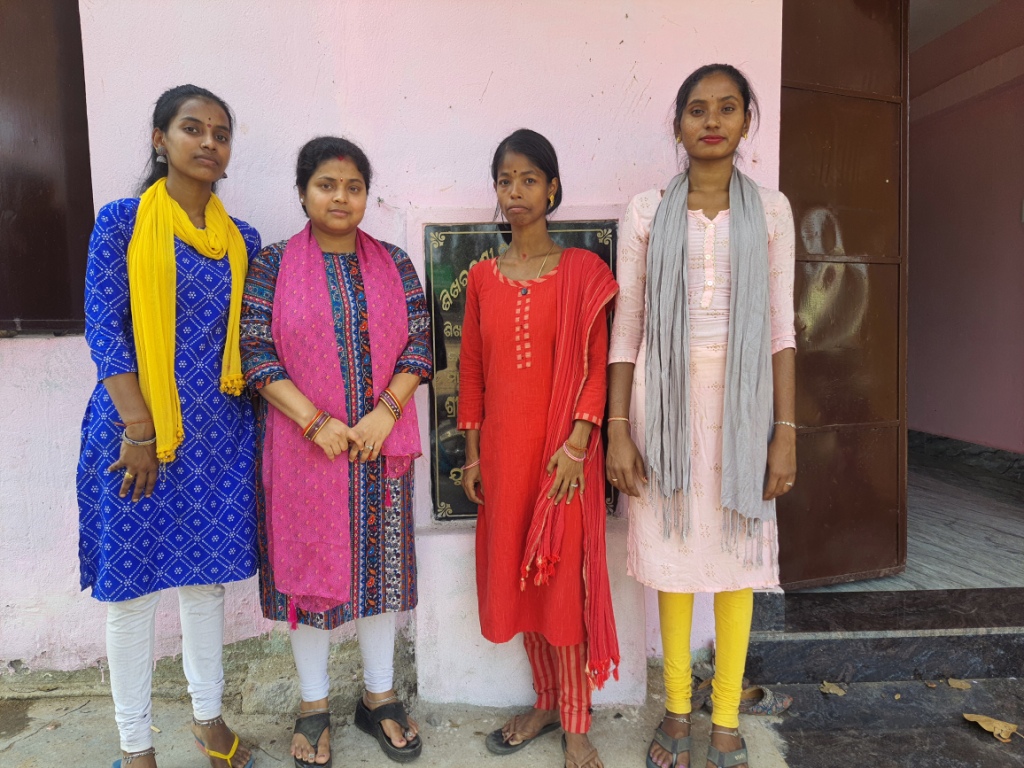Bhubaneswar: Liza Guada, 19, M Madhusmita, 31, Minati Sahoo, 26, and P Yasoda Devi, 20, seem to enjoy their new identity and status in their colony- Bhubaneswar’s Sikharchandi Nagar, a slum which houses over 1,700 families and approximately 7,500 people. As local healthcare volunteers, their contribution has as earned them respect.
A majority of the males in Sikharchandi Nagar are daily wagers; they are mostly carpenters, masons, and painters. The women work as household helps. Though Liza and Yasoda have a few months’ work experience at a call centre, they intend to pursue a career in healthcare. “We will try to have a career in the field that we are associated with today,” says the duo. While Liza’s father is a migrant worker, Yasoda’s is a mason. Both intermediate pass-outs, also aim to complete their degree courses in the future.
On the other hand Madhusmita and Minati- both married and have babies- intend to work here and for their fellow neighbours. Incidentally, these four are among the nine volunteers identified in 2022 in collaboration with community groups by Centre for Youth and Social Development (CYSD) an NGO. The guidelines of the National Skill Qualification Framework (NSQF) were duly followed during the screening process.
According to CYSD’s Uppali Mohanty who heads the initiative, improving the health and well-being of marginalised poor in urban slums, the project aims to create awareness and change behavioral approach towards health and sanitation, strengthen the capacity of the frontline workers and community institutions. The project has been running in two urban slums- Sikharchandi Nagar and Dhirkuti. As part of the project, the chosen women volunteers underwent a comprehensive three-month certification course on General Duty Assistance (GDA).
The course covered crucial aspects of healthcare, ensuring they are well equipped to serve their community effectively. Post training, they have been operating in their respective localities, while one of them has got a job in a private medical college. Apart from checking blood pressure, and blood sugar levels, they measure weights and offer first-aid provisions. Each of them is equipped with instruments for the job. Almost every day, they spend time with pregnant and lactating women and guide them on their diets and practices for the well-being of the mother and child. Their daily routine involves training the adolescent girls on hygiene, cleanliness, and dietary practices. In emergencies, they also escort the locals to the nearby hospital. Also in their spare time, these paramedics assist the Anganwadi worker, ANM, and Asha worker in different programmes.
Currently, they are busy in the pulse polio drive in their colony. “These girls are doing a good job, most importantly they have raised the residents’ awareness on healthcare and personal hygiene,” says the Asha worker in Sikharchandi Nagar, Renuka Pradhan. For these girls though, this journey of theirs didn’t have a smooth beginning. “Initially we faced resistance; many even didn’t allow us into their houses,” say Liza, Madhusmita, Minati, and Yasoda. However, the resident’s attitude changed after a few days. In due process, the colony’s outlook has witnessed a change too. “These girls deserve credit for the positive change they have brought about in this colony,” thought an elderly woman who didn’t wish to be named.
DEBI MOHANTY, OP
